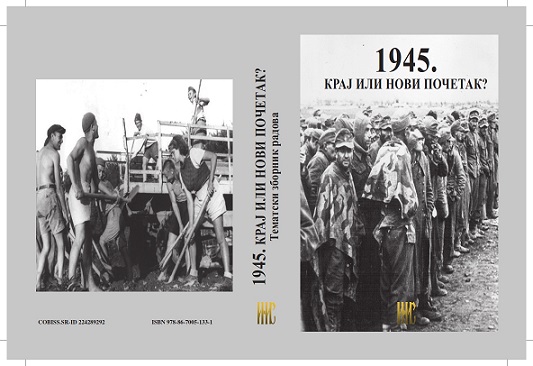Успостављање и одвијање редовних економских односа између Југославије и Совјетског савеза 1945. године
Establishment and Course of Normal Economic Relations between Yugoslavia and the Soviet Union in 1945
Author(s): Momir Ninković
Subject(s): Governance, Economic history, Political history, Economic policy, International relations/trade, Economic development, WW II and following years (1940 - 1949)
Published by: Institut za noviju istoriju Srbije
Keywords: Yugoslavia; USSR; economic relations; foreign trade; Soviet experts; joint companies; commodity loan;
Summary/Abstract: By the end of WWII Yugoslavia had suffered huge human and material losses. The Yugoslav communists eyed the West with distrust, deeming that possible economic help from those quarters would be coupled with political pressure. They expected the Soviet Union, of which they had an idealized conception, to aid the renewal. Although it was one of the two super-powers that had come out of the war, the USSR had also suffered major material damages and was not always able to satisfy all Yugoslav demands to the full. Aid was lent in keeping with Soviet capabilities whenever possible. During 1945 possibilities were explored and negotiations led about a goods loan, establishing joint companies, employment of Soviet experts and trade. Foreign trade had the character of aid and was the main form of cooperation during that year. The Soviet Share in Yugoslavia’s foreign trade was 75.1% in exports and 68.3% in imports. Thanks to trade necessary raw materials and goods reached Yugoslavia.
Book: 1945. Kpaj или нови почетак?
- Page Range: 497-529
- Page Count: 33
- Publication Year: 2016
- Language: Serbian
- Content File-PDF

